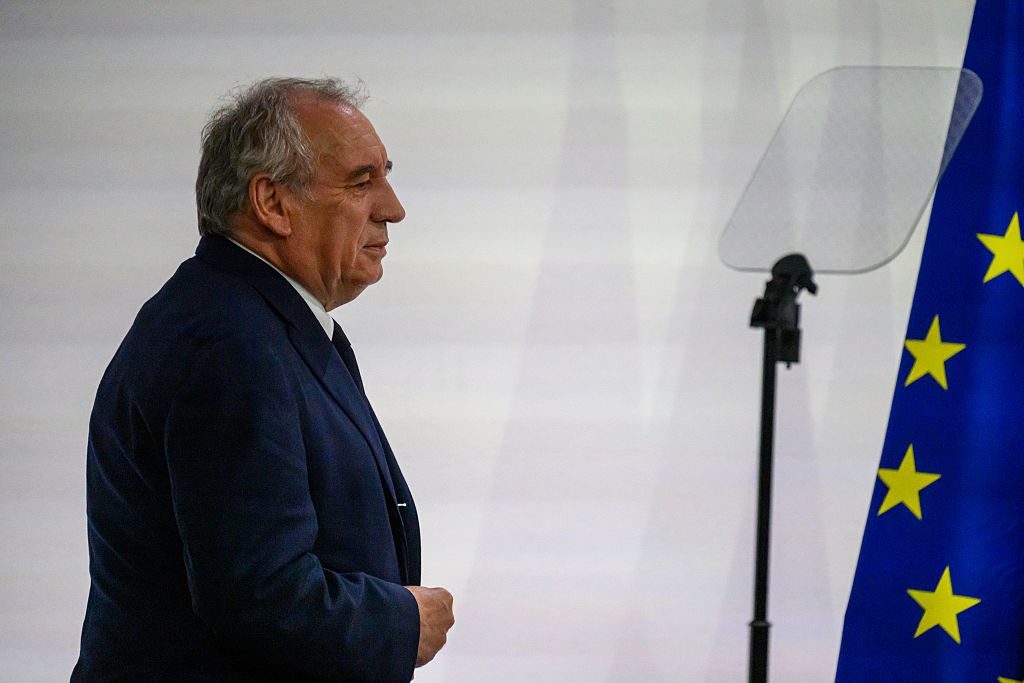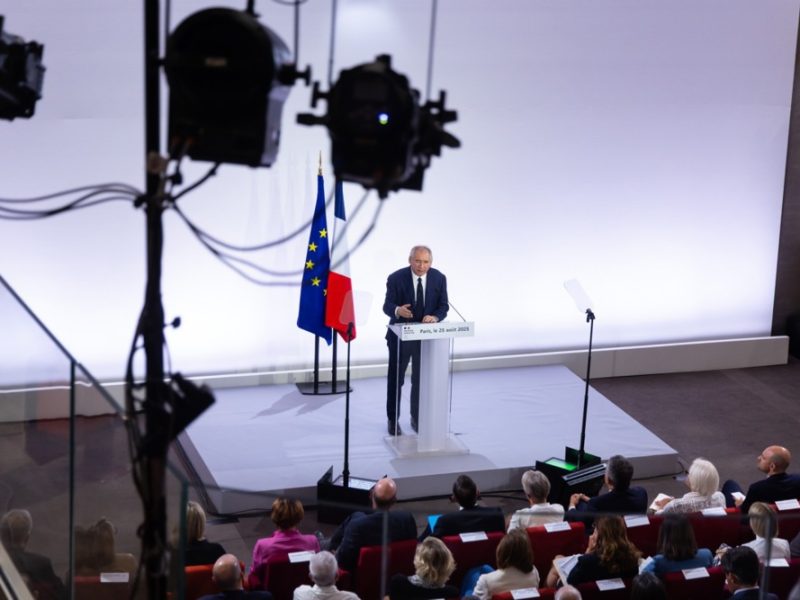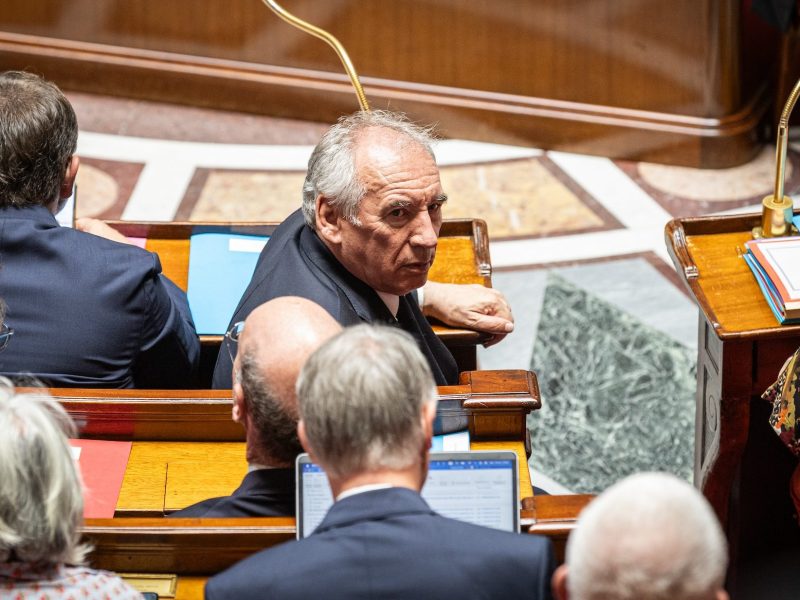French stocks plunged for the second day in a row on Tuesday after Prime Minister François Bayrou unexpectedly called a confidence vote, heightening fears that persistent political instability is hurting the EU’s second-largest economy.
The CAC 40, France’s benchmark stock market index, was down 1.46% as of 1.15 pm CEST – far below the 0.60% decline registered by the STOXX Europe 600, a broad measure of European equities.
France’s 10-year bond yields, meanwhile, continued to hover around 3.51% – 10 basis points (0.1 percentage points) more than before Bayrou’s announcement on Monday, and just 10 basis points below that of Italy, traditionally seen as far riskier by investors.
“Political instability is eroding French bonds’ traditional core status,” said Nour Al Ali, macro strategist at Bloomberg News. “With austerity plans dividing parliament, France’s borrowing costs risk climbing further, leaving both bonds and equities struggling to regain momentum.”
Following Bayrou’s announcement on Monday, the spread between French and Italian 10-year bonds briefly touched 9.8 basis points – the lowest since 1999. In a further sign of investor unease, the spread between French and German Bunds – the eurozone benchmark – has risen 7.6 basis points since Bayrou’s move.
Claus Vistesen, chief eurozone economist at Pantheon Macroeconomics, said the current crisis is the result of Bayrou and his centrist ally, President Emmanuel Macron, playing a “game of chicken” with the country’s far-right and far-left factions over next year’s budget.
Bayrou’s fiscal plan, presented to the French parliament in July, involves €43.8 billion in proposed savings, with 80% funded by spending cuts and 20% by tax hikes. Bayrou argues the proposed austerity measures are necessary to curb France’s swollen budget deficit, which hit 5.8% of GDP in 2024 – nearly double the EU’s permitted 3% threshold.
Bayrou’s predecessor, Michel Barnier, resigned in 2024 after failing to pass a similar budget through the country’s deeply divided parliament, which is evenly split among centrist, far-right, and far-left factions.
“Macron is playing a quite cynical game here,” Vistesen said. “He is hoping that by exposing the inability of parliament, in this case, the left and the right, to work together to actually come up with a budget … he’s going to show the people they [the left and right] can’t govern.”
“It’s a game of chicken, and French assets, and, eventually, consumer confidence, business confidence … are paying the price,” he added.
No escape?
Many analysts warn that there appears to be no obvious way out of France’s political crisis.
If, as expected, Bayrou loses the confidence vote on 8 September, Macron could either appoint a new prime minister – which will almost inevitably lead to a similar budget standoff – or he could call fresh elections, which polls suggest will fail to yield a clear majority for any of the country’s three political groupings.
“Either path would inject fresh uncertainty into an already fragile political landscape,” Charlotte de Montpellier, senior economist at ING, wrote on Monday, adding: “France’s political instability is becoming an economic liability.”
Vistesen also warned that even if the French bond market “really starts to crack” – which he suggested would involve the spread between French and German bond yields surpassing 100 basis points – Macron would likely still blame his political opponents.
“Macron is just going to come out and say: ‘Hey, look, it’s not my fault. I’ve appointed the government. The government has put out a solution for this. We need to consolidate our finances’.”
(mm, vc)


